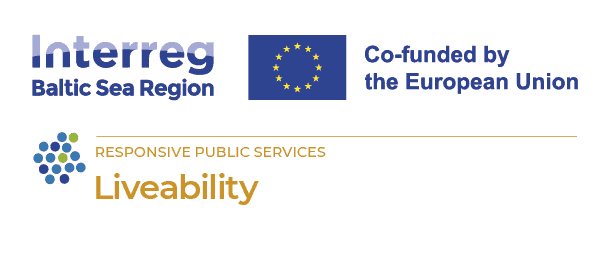
Liveability – Gdynia’s first impressions from testing and twinning
07 April 2025
In Gdynia, a network of community centres is spread across various districts, offering essential services and fostering social cohesion. Depending on the location, these centres serve as hubs for the city’s social services, providing free psychological support, legal advice, public libraries, and sports activities. A key feature of these centres is the neighbourhood houses, which offer spaces for local communities to engage in recreational, educational, and social integration.
Between March and September 2022, Gdynia’s community centres, supported by public administration staff, provided refuge to people fleeing the war in Ukraine. Following this initial response, the centres shifted their focus to facilitating the social integration of new residents. This initiative extended beyond Ukrainian refugees to include migrants from other countries who had relocated to Gdynia before the war.
Neighbourhood Centres as Spaces for Experimenting with Liveability
Managed by the Social Innovation Lab—a public sector entity under local authority supervision—the neighbourhood centres are open to all citizens and provide easy access to public services. These centres offer ideal spaces for testing and implementing the principles of a liveable city in practice.
The local pilot of the Liveability project focuses on figuring out possibilities of socio-cultural integration between newcomers and the local population. The primary goal is to develop effective methods for integrating new residents, particularly refugees and migrants, into Gdynia’s community. By leveraging the potential of neighbourhood centres, the project seeks to create open, friendly, and harmonious neighbourhoods where all residents feel welcome, safe, and motivated to collaborate and contribute to the common good.
Guiding Principles and Methodology
Using the Liveability Design Approach and The Charter for Designing the Liveable City, the pilot focuses on core values such as unity and diversity, care and trust, attractiveness, and psychological well-being. Key principles included designing for the public good, holistic and integrated planning, and fostering a learning city and municipality.
The test followed a comprehensive design methodology, encompassing all stages of the process: understanding the challenge, empathizing with users, generating ideas, prototyping, and testing. The iterative process allowed teams to explore diverse solutions and apply design concepts effectively.
The Challenge, Testing, Training Workshops and Products
The initial challenge—”How do we develop our neighbourhood centres’ offer to more effectively meet the needs of all residents and foster cross-cultural relationships?”—was refined to: “How might we help newcomers—particularly refugees and migrants—integrate with local citizens and feel welcomed in Gdynia through the network of community centres?”
The piloting involved research, report analysis, consultations, and needs assessments of target groups. Neighbourhood centres’ staff also gathered insights into residents’ sentiments. Based on this information, a training workshop was developed to enhance intercultural communication skills and promote friendly, inclusive community spaces.
Stakeholders and participants included representatives from the local intersectoral migration forum, the Municipal Social Welfare Center, the District Labor Office, the Crisis Intervention Center, and the Social Innovation Lab with neighbourhood houses’ animators. Expert trainers from renowned NGOs with international experience facilitated and contributed to testing results.
The workshops covered topics such as the human rights-based approach, cultural sensitivity, inclusive language, nonviolent communication, and anti-discrimination practices. A culminating workshop welcomed representatives from Gdynia’s twinning city, Krosno, fostering peer-to-peer learning in an open, reflective atmosphere.
The workshops were highly successful, inspiring the creation of a prototype communication manual and guide for empathetic public services in an intercultural city. Though the pilot was small-scale, the manual has the potential to benefit a wider range of stakeholders and serve as a tangible, sustainable tool for ongoing and future initiatives. When ready, the guide will be used by Gdynia’s twinning colleagues in Krosno, where they are developing the model and space for a local neighborhood activity center.
Key Insights and Takeaways
Through workshops, meetings, and one-on-one consultations, the Gdynia Liveability Project Team aimed to cultivate an organizational culture that encourages learning and growth. Key insights from the process include:
- Staff trained in intercultural approaches can better facilitate social integration through attentive interactions and behavioural nudges.
- Open-minded, stereotype-free public administrators can serve as role models, making community centres more welcoming spaces.
- Genuine intercultural cooperation requires time, effort, and active participation from all stakeholders.
The project demonstrates that fostering an inclusive, liveable city is a continuous journey, requiring dedication, empathy, and collaboration from the entire community.
Picture credits: Social Innovation Lab – City of Gdynia





